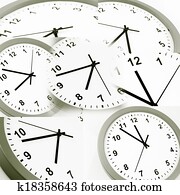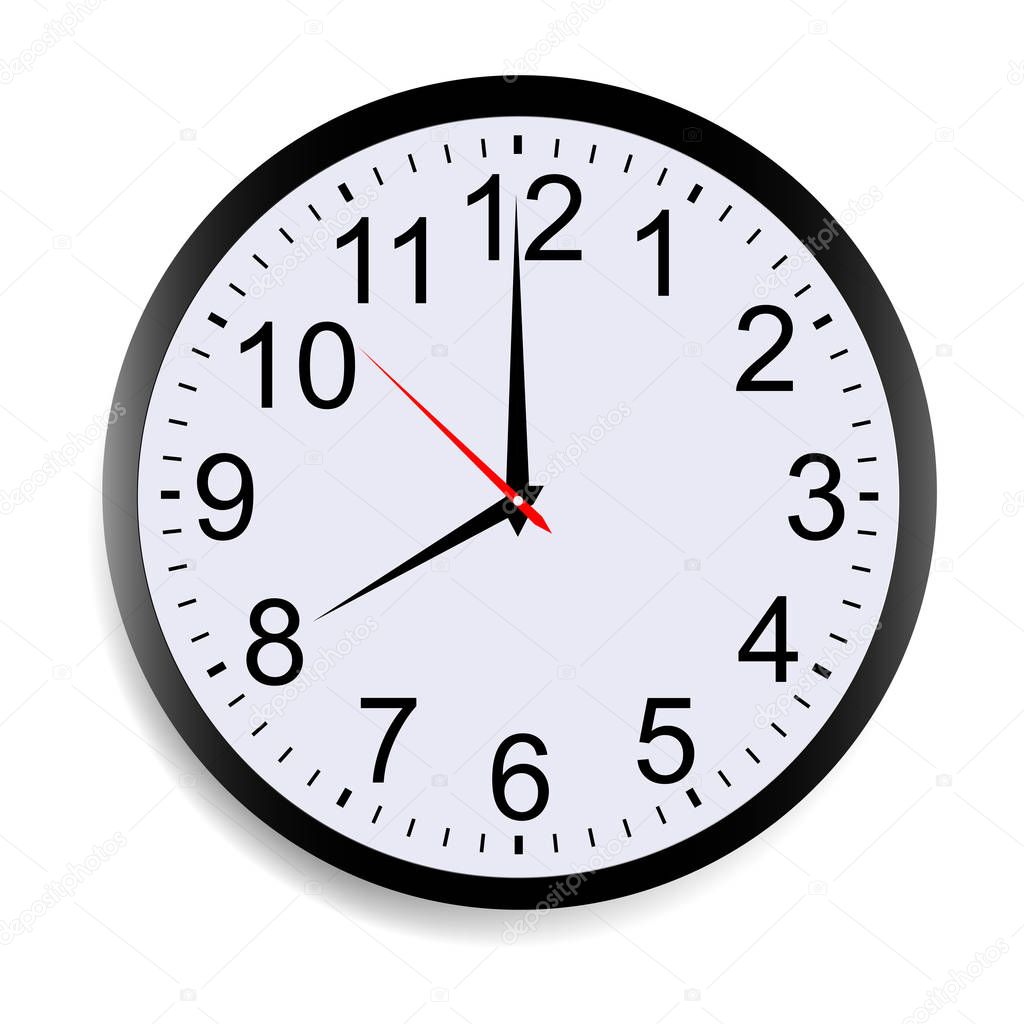
Since the standard FLSA work period for seven consecutive days is 40 hours per week, everything beyond these 40 hours counts as overtime. The FLSA also regulates that all non-exempt employees must be paid for all hours worked, including overtime and off-the-clock work. The same rule applies for working off-the-clock after shifts. Working off-the-clock lawsĪccording to the Fair Labor Standards Act, working off-the-clock "counts as work time and must be included in FLSA pay computations, provided only that the employer knew or should have known that the employee was beginning work early (and, of course, to the extent that the employee spent pre-shift time actually performing work activities)".
#ON THE CLOCK CODE#
Otherwise, your employee could be charged for violating the Code of Federal Regulations. In that case, breaks up to 20 minutes are part of compensable work hours, and they have to be covered by the sum of hours worked per week.īut, keep in mind that if your employer offers you a lunch break, you “must be completely relieved from duty for the purposes of eating regular meals". Still, regardless of the federal law, employers might choose to offer breaks to their employees.

So it’s always best to check your state laws to see whether employees are entitled to a break. But, certain states have laws that require rest periods. US federal law doesn’t enforce lunch or coffee breaks.

Post-shift work: cleaning up the workspace, equipment, and tools, finishing tasks that should be done by the end of the shift, or returning equipment.Pre-shift work: activities like truck warming or loading, worksite preparation, or carrying job equipment.Here are some of the most common types of working off-the-clock: The most common types of off-the-clock work activities So, working off-the-clock covers work activities done outside official shifts (before or after official working hours), without any compensation. It can include any type of activity that benefits the employer and counts as a part of the job. This type of labor does not contribute to overtime pay.

Off-the-clock work is the work employees perform outside of their working hours and for which they are not compensated.

But, is working off-the-clock a trend that we should continue to follow? What is off-the-clock work? The pandemic didn’t reverse this trend, so the number of emails sent after hours increased by 8.3% in 2020. How often do you check your email even after you finish working? Did you know that spending time in your inbox when you shouldn’t be working is a common off-the-clock work activity? In fact, a survey, showed that 43% of American employees checked their work emails every few hours when they were off-duty in 2019.
#ON THE CLOCK HOW TO#
Greens rolling 12 and wind blowing 20+.Working off-the-clock: why it’s illegal & how to prevent it Hardest golf tourney of the year and they have the audacity to put groups on the clock. In the sport of golf, a player is put on the clock if they are taking too long to play, meaning the amount of time they get to make a shot gets restricted to keep up a reasonable game pace in that super exciting, fast-moving game of golf.īrady had 2 minutes on the clock and time outs. This sense surfaces in the mid-20th century. Idc if i’m in my work uniform, i’m not smiling at anyone until i’m on the clock 😂Ī third on the clock appears in sports, referring to the amount of time left in a part of the game (think shot clock). On the clock emerged as an expression meaning “working” and by extension, “getting paid,” even when people aren’t literally clocking in and out. On the clock means many, many things. The first relates to taxicabs. The taximeter was invented in 1891 by the Germans and put into English motorized hackney cabs in the early 1900s who called them clocks in the UK (usually meters in the US). If a cab is running, the mileage is on the clock-and you’re paying for it.Īround the same time, clocks became commonplace in workplaces, especially factories, where workers would record, for the purposes of pay, when they arrive and leave work using a clock system (clocking in, clocking out).


 0 kommentar(er)
0 kommentar(er)
